 September 2023 in “International Journal of Trichology”
September 2023 in “International Journal of Trichology” Oral Vitamin D can improve hair density and reduce hair loss in Telogen Effluvium patients.
June 2022 in “Indian Journal of Ophthalmology/Indian journal of ophthalmology” Early and aggressive treatment is crucial for preserving vision in infants with AEC syndrome.
May 2021 in “Research journal of topical and cosmetic sciences” TrichovitalsTM improved skin, hair, and nail health in adults after 12 weeks.
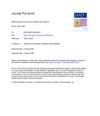 August 2020 in “Journal of The American Academy of Dermatology”
August 2020 in “Journal of The American Academy of Dermatology” Oral minoxidil can improve hair thickness and a comprehensive treatment approach leads to better alopecia outcomes.
June 2020 in “Journal of skin and stem cell” The patient's hair loss from alopecia totalis returned despite initial successful treatment.
June 2019 in “Medicine and science in sports and exercise” The runner's bone injuries were linked to untreated Celiac Disease and low energy availability affecting her bone density.
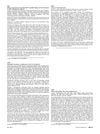 May 2015 in “Journal of The American Academy of Dermatology”
May 2015 in “Journal of The American Academy of Dermatology” Oral minoxidil effectively increases hair growth in male baldness but can cause side effects like excessive hair growth and swelling.
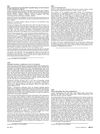 May 2015 in “Journal of The American Academy of Dermatology”
May 2015 in “Journal of The American Academy of Dermatology” Oral minoxidil improved male baldness, but had side effects; certain antibiotics effectively treated a rare scalp condition; hair transplants might trigger another scalp condition.

Choose oral contraceptives with specific side effects to manage issues like acne and avoid unwanted effects.
 June 2022 in “Journal of The European Academy of Dermatology and Venereology”
June 2022 in “Journal of The European Academy of Dermatology and Venereology” Microneedling with topical dutasteride improves hair growth in men with hair loss and is safe to use.
 117 citations,
March 2013 in “Journal of the European Academy of Dermatology and Venereology”
117 citations,
March 2013 in “Journal of the European Academy of Dermatology and Venereology” No effective treatment for frontal fibrosing alopecia was found, but oral 5-alpha-reductase inhibitors had the best response; for lichen planopilaris, topical corticosteroids were commonly used but had a high relapse rate.
 108 citations,
March 2006 in “Archives of Dermatology”
108 citations,
March 2006 in “Archives of Dermatology” Finasteride with oral contraceptive helps improve hair loss in premenopausal women.
 103 citations,
June 2006 in “British journal of sports medicine”
103 citations,
June 2006 in “British journal of sports medicine” The document concludes that better biomarkers are needed to detect long-term oral testosterone use in athletes.
83 citations,
December 2012 in “International journal of endocrinology and metabolism/International journal of endocrinology and metabolism.” Oral contraceptives provide various health benefits beyond birth control, including managing menstrual issues, skin conditions, pain, and reducing the risk of certain cancers.
 66 citations,
September 2008 in “Dermatologic therapy”
66 citations,
September 2008 in “Dermatologic therapy” The conclusion is that the best initial treatment for hirsutism is usually oral contraceptives, with the addition of antiandrogens or insulin sensitizers if needed, and topical eflornithine or laser treatments as supplementary options.
 43 citations,
November 2019 in “American Journal of Clinical Dermatology”
43 citations,
November 2019 in “American Journal of Clinical Dermatology” FAGA diagnosis uses blood tests and trichoscopy, with treatments like topical minoxidil, oral anti-androgens, and hormone-modulating drugs.
 42 citations,
July 2015 in “Journal of The American Academy of Dermatology”
42 citations,
July 2015 in “Journal of The American Academy of Dermatology” The conclusion is that oral contraceptives and antiandrogens can treat hirsutism and acne in women with cutaneous hyperandrogenism, but more research is needed for effective treatments, especially for hair loss.
 41 citations,
September 2007 in “Pediatric emergency care”
41 citations,
September 2007 in “Pediatric emergency care” Oral medication is necessary to treat scalp fungus in children, with griseofulvin being the usual choice.
37 citations,
May 2018 in “Transgender health” Oral estradiol works for many transgender women but needs personalized dosing and monitoring.
 33 citations,
February 1996 in “Journal of The American Academy of Dermatology”
33 citations,
February 1996 in “Journal of The American Academy of Dermatology” Treat scalp and beard fungal infections early with oral antifungal medication and sometimes topical therapy, avoiding unnecessary allergy tests and surgery.
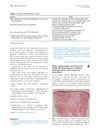 32 citations,
September 2017 in “Journal of the American Academy of Dermatology”
32 citations,
September 2017 in “Journal of the American Academy of Dermatology” Oral isotretinoin effectively treats yellow facial papules in frontal fibrosing alopecia patients.
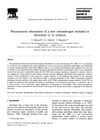 20 citations,
December 1995 in “International Journal of Pharmaceutics”
20 citations,
December 1995 in “International Journal of Pharmaceutics” Liposomes can make the antiandrogen RU 58841 more effective for skin application by reducing absorption, increasing skin retention, and targeting sebaceous structures.
 17 citations,
June 2020 in “British Journal of Dermatology”
17 citations,
June 2020 in “British Journal of Dermatology” Oral mTOR inhibitors often cause skin and hair side effects but usually don't require stopping treatment.
 17 citations,
August 2015 in “Expert Opinion on Pharmacotherapy”
17 citations,
August 2015 in “Expert Opinion on Pharmacotherapy” The document concludes that oral finasteride and topical minoxidil are effective for genetic hair loss, while other treatments for different types of hair loss show promise but need more research.
 14 citations,
September 2015 in “Expert Opinion on Therapeutic Targets”
14 citations,
September 2015 in “Expert Opinion on Therapeutic Targets” The conclusion is that while oral contraceptive pills are effective for PCOS-related high androgen levels, new treatments with fewer side effects are needed.
 10 citations,
April 2018 in “Actas Dermo-Sifiliográficas”
10 citations,
April 2018 in “Actas Dermo-Sifiliográficas” In 2017, Spanish dermatologists most often prescribed minoxidil and finasteride for male hair loss, and minoxidil and oral contraceptives for premenopausal female hair loss.
 5 citations,
June 2018 in “Actas Dermo-Sifiliográficas”
5 citations,
June 2018 in “Actas Dermo-Sifiliográficas” In 2017, Spanish dermatologists commonly prescribed topical minoxidil, oral finasteride, and nutricosmetics for hair loss, with oral contraceptives also used for premenopausal women. Less common were oral dutasteride, due to side effects, and newer, more expensive treatments like topical finasteride and Low-Level Laser Therapy. The conclusion is that there's a need for prescription guidelines due to varied treatment approaches.
 4 citations,
July 2018 in “PubMed”
4 citations,
July 2018 in “PubMed” Oral and topical tofacitinib can help regrow hair in people with severe alopecia areata.
3 citations,
March 2022 in “Archives of Dermatological Research” 3 citations,
May 2021 in “PloS one” Many men misuse oral contraceptive pills for things like hair growth and muscle gain.






















